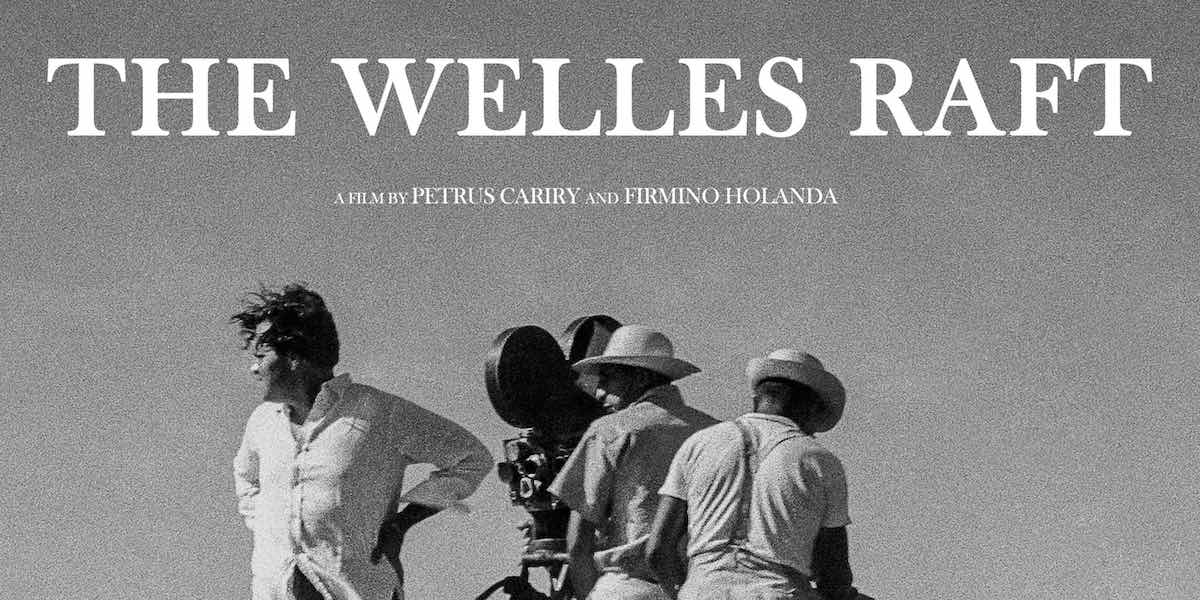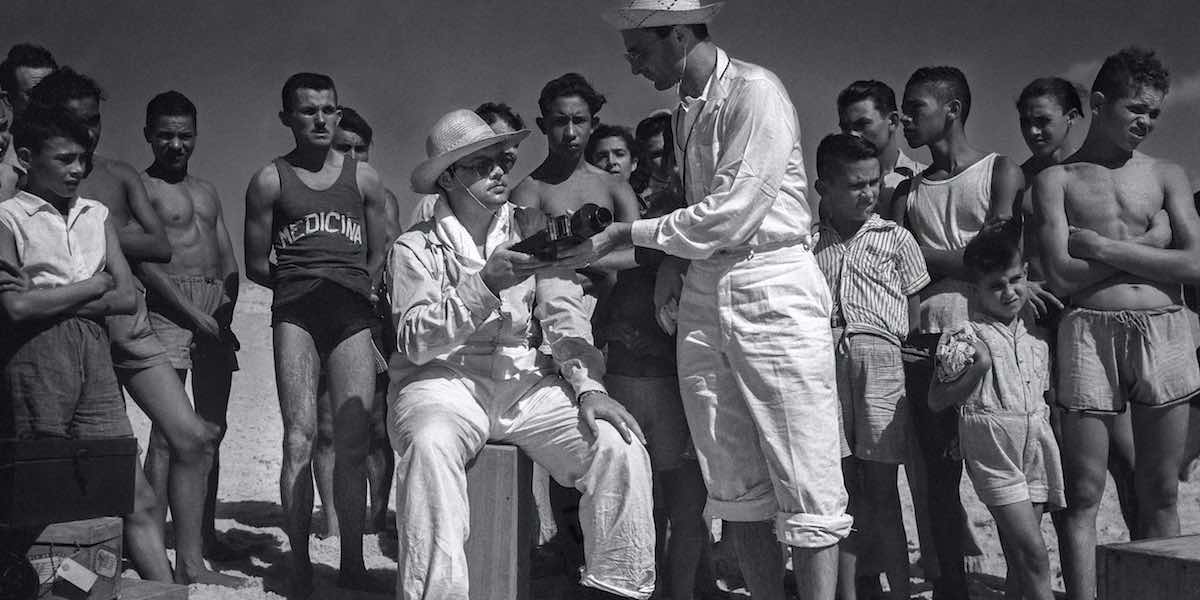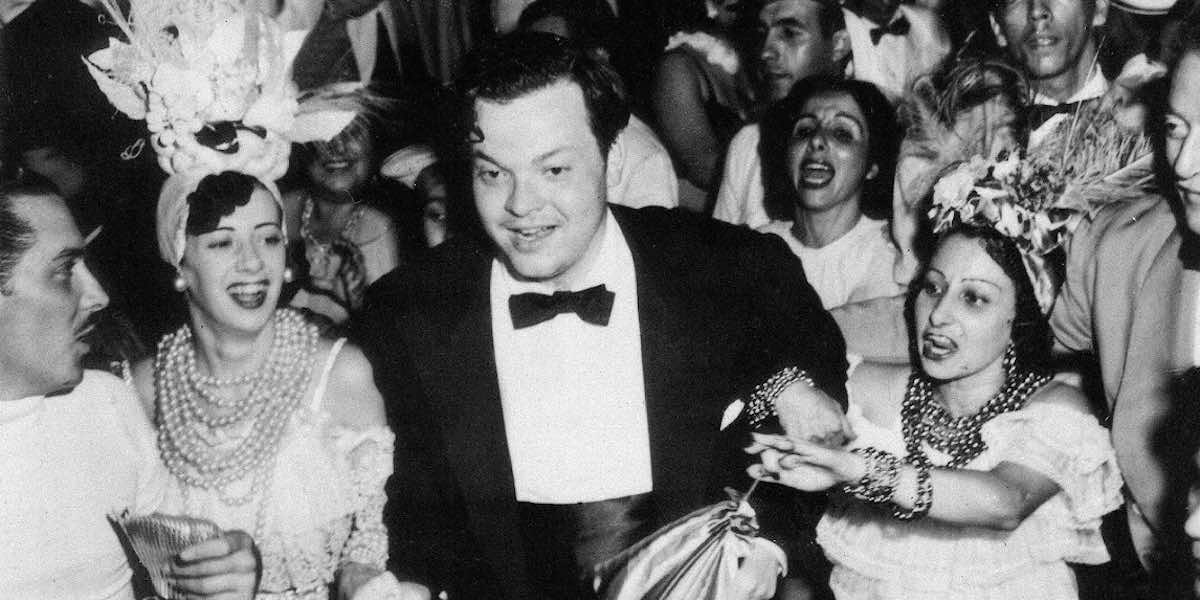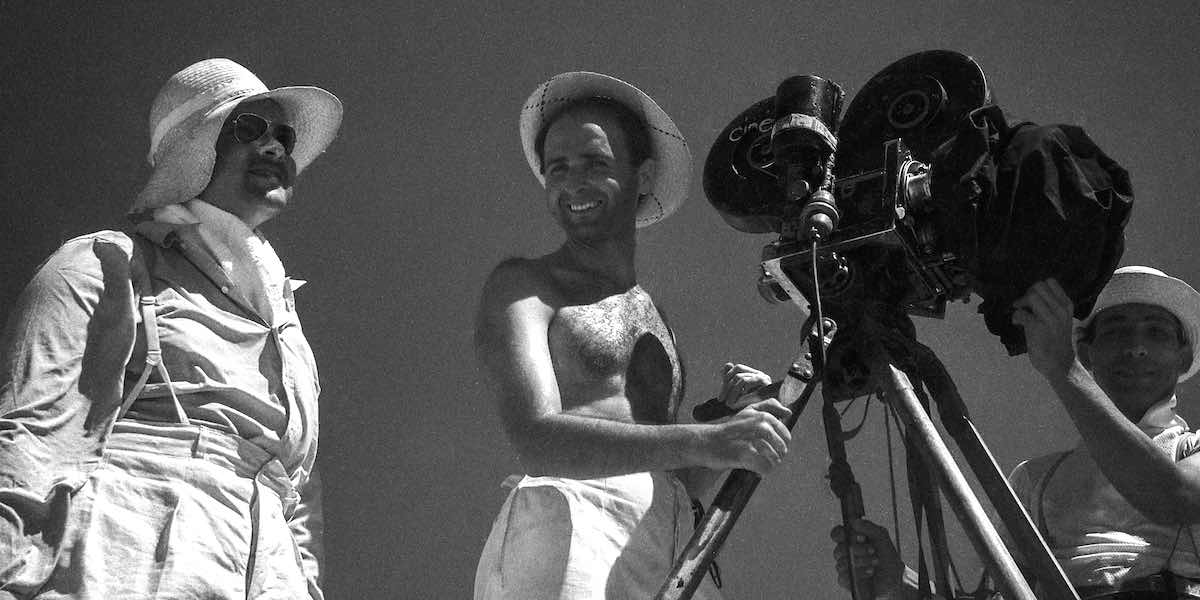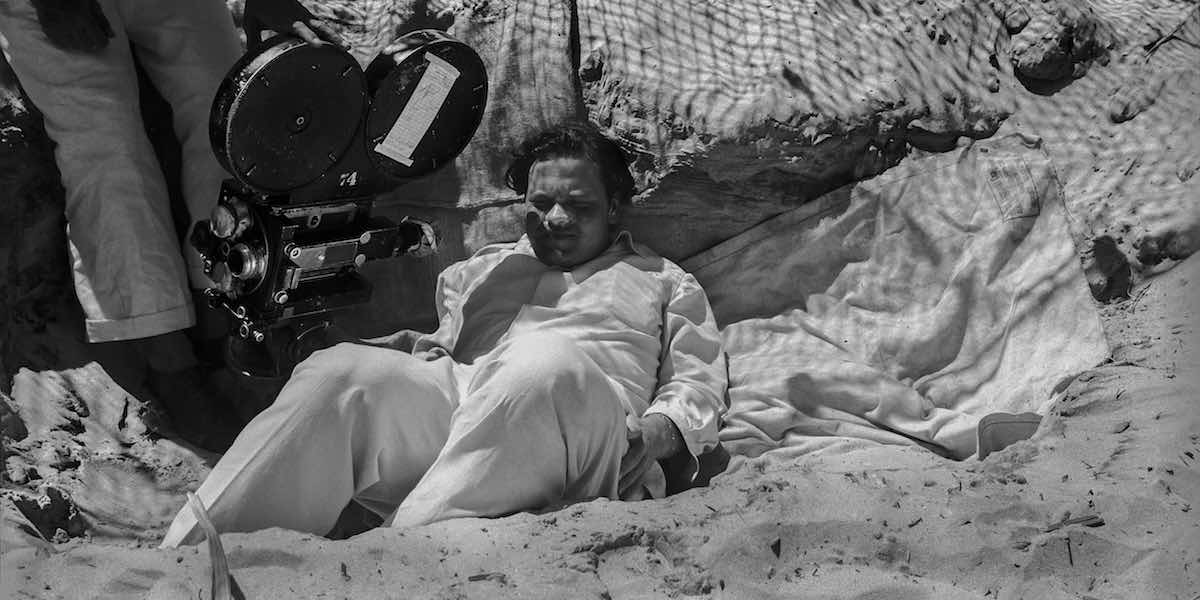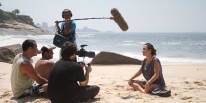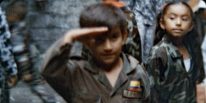The Welles Raft is an account of Orson Welles unfinished film in Brazil.
Funded by Nelson Rockefeller and the U.S. Office of Inter-American Affairs, Orson Welles It’s All True was to be central to President Franklin Delano Roosevelt’s Good Neighbor Policy. Featuring three stories about Latin America, Welles accepted the challenge of directing a film that adhered to the policy’s goal to improve relations with the nations of Central and South America.
The Welles Raft focuses on one of the three stories inspired by the real-life event of four Brazilian fishermen who set sail from Fortaleza to Rio de Janeiro on a simple raft (jangada) to file their grievances against an economically exploitative system. The result was a bill signed by President Vargas that entitled the jangadeiros to the same benefits awarded to all union laborers.
The re-enactment of this epic voyage was to become the centerpiece of It’s All True. But during filming, the leader of the jangadeiros, Jacaré, fell from a jangada and was swallowed by a treacherous ocean current.
Welles was allowed to finish shooting Four Men on a Raft with a minimal budget and crew, but the completion of It’s All True was abandoned.
